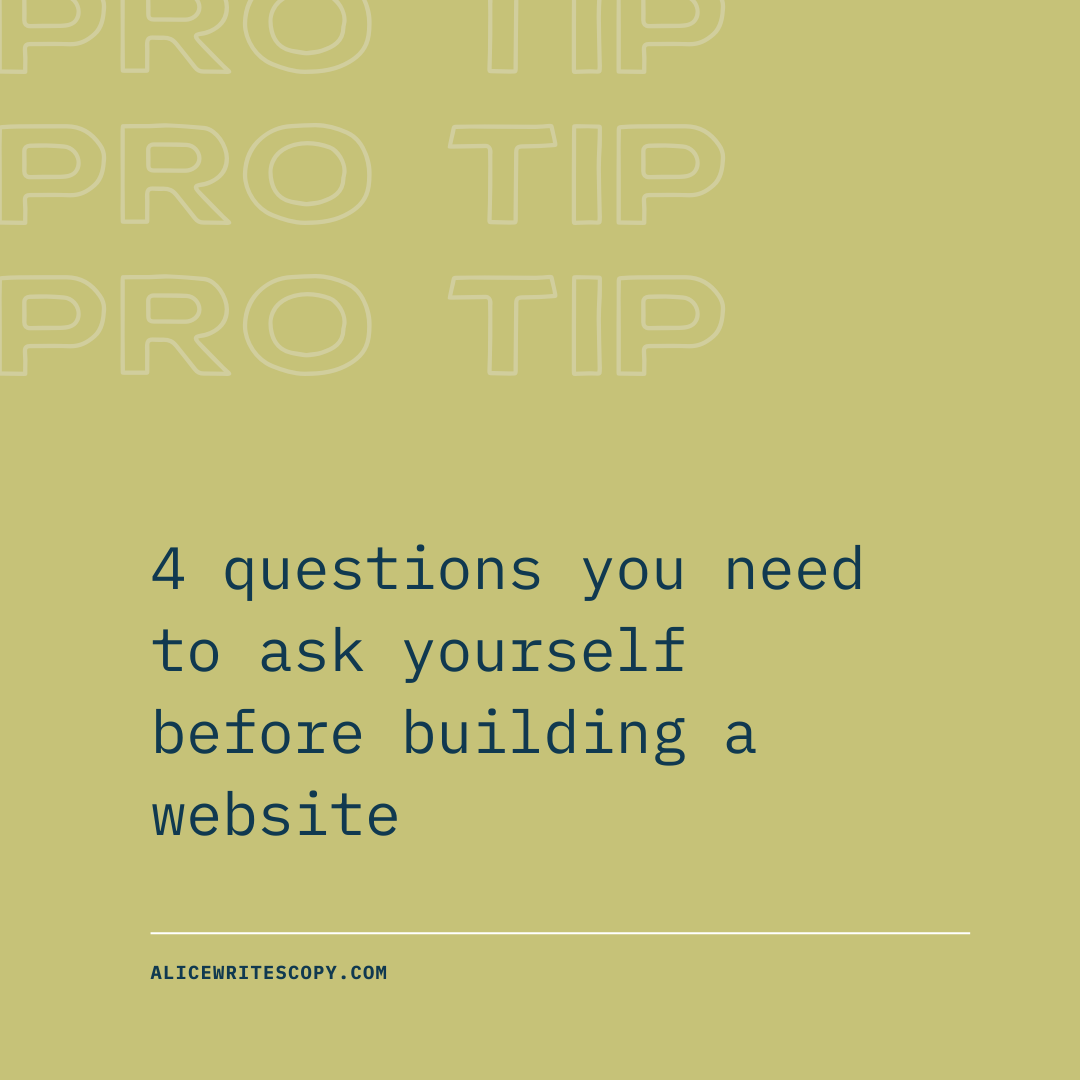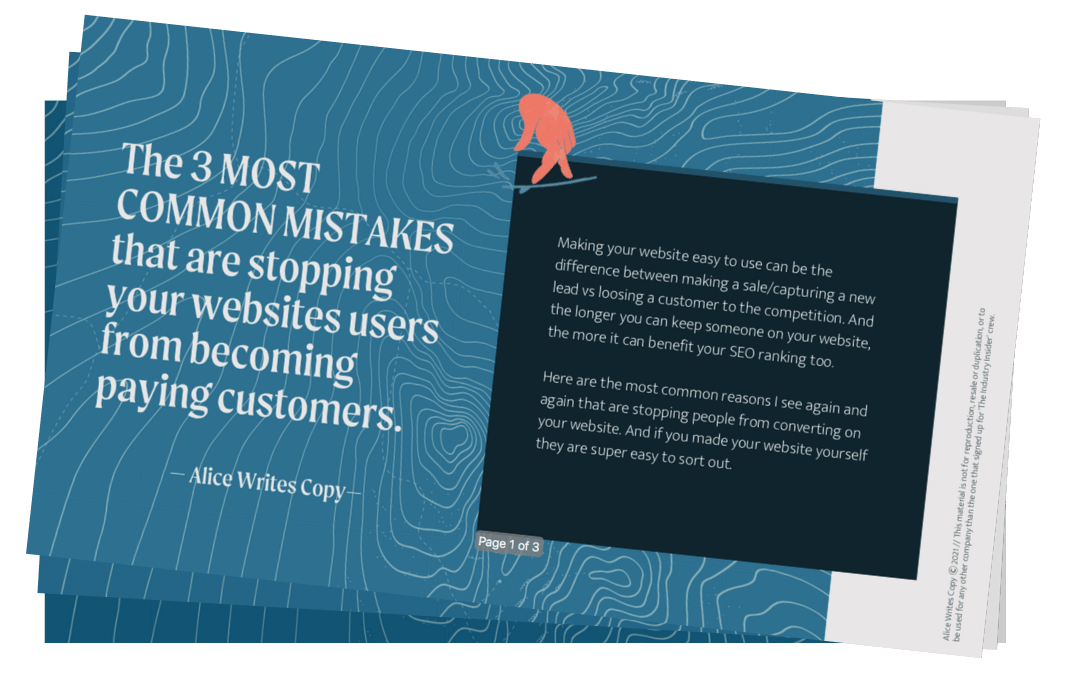4 things you didn’t know you needed when building a website for your business
The point of having a website isn’t just to get someone from A to B (‘A’ being when someone first sets eyes on your site, and ‘B’ being the point where you make a sale or get a sign-up).
A website should be used to build brand recognition, integrity and to let you connect with your audience on a more human level.
So the more barriers there are to connecting with your audience, the less likely your website is going to be effective.
If we can remove these barriers, it is much easier to resonate with your ideal clients. (And therefore it’s easier to convert passive scrollers into paying customers).
Book a website designer and they are very unlikely to ask you every single thing that’s necessary to build an effective website.
Solely having a stylish website design with fun animations or professional brand photos isn’t going to move the needle for you.
So I’m going to ask you 4 key questions to help you work out whether there’s something holding you back from having an impactful website.
1) What is the problem you solve (or desire to fulfil) for your target market?
Is there a ‘you’ shaped space for you to fill? If not, create one.
They say that there’s no use trying to sell ice to the inuits. That is true to an extent. But with ocean pollution on the rise, there is merit in selling inuits purified ice without the microplastics from fishing waste or harmful chemicals from oil spills.
It’s about ensuring that you have considered the wants, needs and problems of your target market.
It may be glaringly obvious to you how your product or service solves a problem for your target market, but it may not be so obvious to new eyes on your website. So ensuring that your website positions you as a solution will help you connect to the people who will benefit the most from what you offer.
2) What and where are your goal posts?
Without deciding on a goal for your business website or a specific action you want your customers to take, a website can become confusing and ineffective.
What’s the point of playing a rugby match if no one can see the goal posts?
Or if there are just no goal posts at all?
When you create your website, make sure to start with a goal in mind. Ensure the people on your website know what that goal is. Often this goal is a conversion of sorts, like getting someone to buy a product, sign up to an email newsletter or send an enquiry.
So encourage more conversions by making that action/goal post prominent. Don’t hide them away.
3) What makes you different from the competition?
In 2019, there were 30.7 million small businesses in the USA. That is a lot of competition. Do you feel like your industry is getting more and more crowded, the longer you run your business?
To stand out, it’s not a case of who can shout the loudest.
It’s about who can communicate with the most clarity.
So before you jump right in to write your website copy, take a moment to write down everything that makes you different. Is it the people on your team or the experience you have? Is it the materials you use or the strong ethics of your brand? Is it the price or the customer service?
4) Is there a disconnect between you IRL and how you’re represented through your website?
Before I started my own business, I worked with many adventure sports companies initially in administrative roles or coaching (or both). The more I started to learn about marketing, the more often I saw a gaping chasm that separated how epic the company was in real life and how they came across on their website and/or social media.
The years of experience they had was hidden away. There wasn’t a focus on what elevated them in their industry. It wasn’t apparent that the company had developed a fantastic customer experience. Their online presence didn’t make others feel they were particularly approachable.
Their online presence wasn’t truly representing them.
So without being accurately or authentically represented online, you’ll have a disconnect between you and your audience. This inconsistency means you’ll look unprofessional.
In an ideal world, you want that gap to be bridged by your online presence in order to show your personality, build trust, and get your audience excited before they’ve even engaged with you.
Want to build more momentum for your business by optimising your website?
Are people leaving your website in the first three seconds of arriving there?!
Download the free checklist that shows you three key reasons why you might be struggling to convert scrollers into paying customers…



